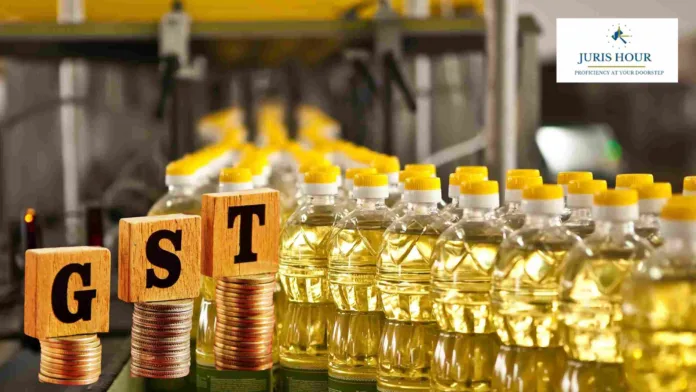The edible oil industry has urged the central government to lift GST ITC refund restrictions, imposed since 2022, warning that the move is straining working capital and weakening domestic manufacturers.
In a letter to the Finance Ministry and the Commerce and Industry Ministry, the Solvent Extractors’ Association of India (SEA) highlighted that edible oil processors are burdened by an inverted duty structure. The industry pays higher GST rates on inputs and services—ranging between 12% and 18%—while the GST rate on the final edible oil output is only 5%. This imbalance has led to the accumulation of over ₹300 crore in unclaimed ITC, according to SEA.
“This situation has created an alarming financial strain on the edible oil sector. The denial of ITC refunds since July 18, 2022, is causing severe working capital blockages and making it difficult to sell products competitively,” SEA President Sanjeev Asthana stated in the letter.
An inverted duty structure arises when taxes on raw materials and services exceed those on the finished product. SEA explained that this distortion disproportionately affects small and medium enterprises (SMEs), reduces competitiveness of domestic refiners compared to importers, and fuels inflation in a vital commodity.
The association also urged the government to reduce GST rates on packaging materials for edible oils from 12% to 5%, to better align with the final product tax slab.
The Centre, in its ongoing efforts to overhaul GST, has proposed reducing the current four-tier structure (5%, 12%, 18%, and 28%) to a simplified two-rate structure of 5% and 18%, with a special 40% rate for sin and demerit goods. Prime Minister Narendra Modi, in his Independence Day address, had indicated reforms would be announced by Diwali, aimed at benefiting MSMEs and easing compliance burdens.
While the Group of Ministers on Rate Rationalisation has extended in-principle support to GST restructuring, some member states remain cautious over potential revenue losses.
For the edible oil industry, however, timely resolution of refund and duty-related issues remains crucial to survival and competitiveness in both domestic and international markets.

